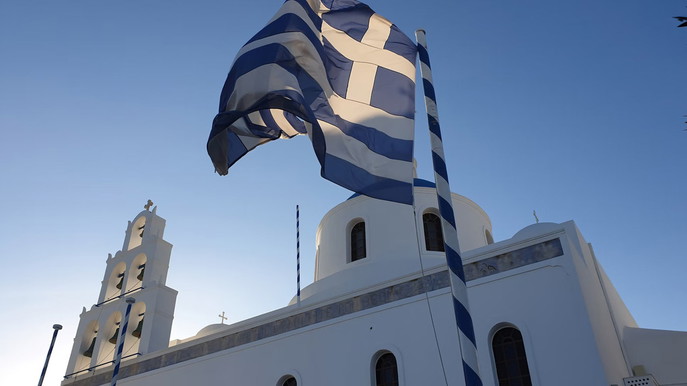Greece is a country that every person dreams of visiting at least once in their lifetime. Its lovely islands, history, and delicious cuisine are enough to cherish.
However, aside from its famous landmarks and beaches, Greece still has many other fascinating quirks and customs that every student must know.
If you're one of those students who wish to study in Greece or have that Mediterranean dream, here are 30 fun facts about Greece that have made all such students fall in love with this amazing country's glorious history and culture.
1. Western Culture Was Born in Greece
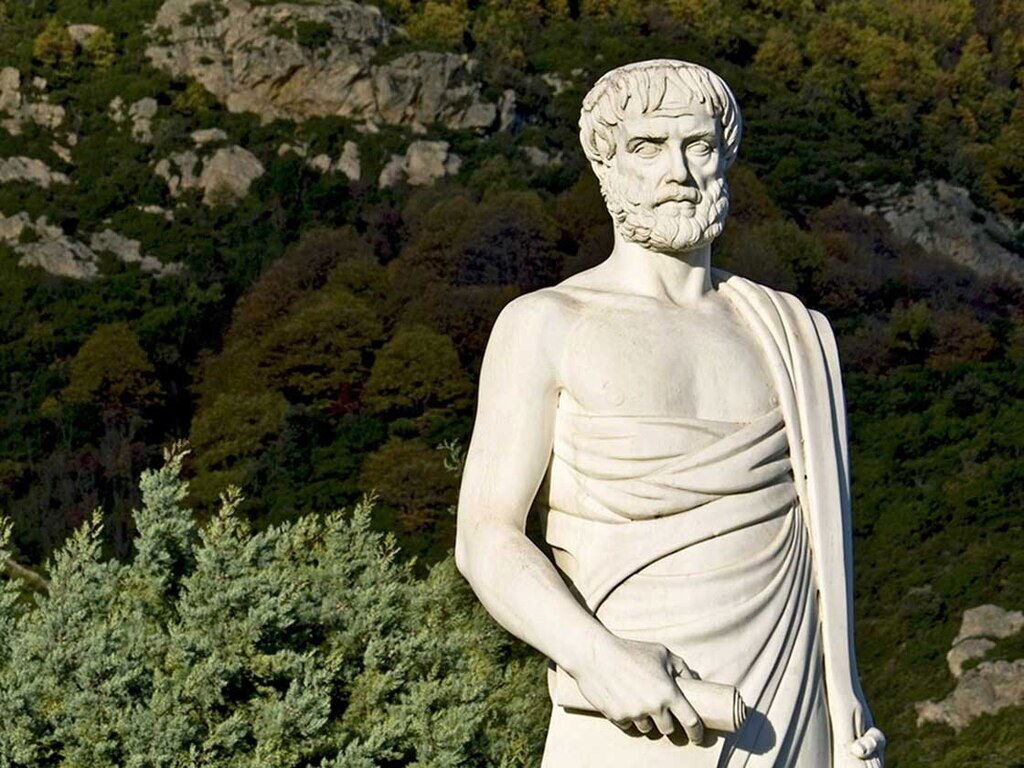
Ever wondered where democracy, science, and philosophy started? Look no further. Greece gave the world legendary thinkers like Aristotle, Plato, and Socrates.
Don’t forget mathematics and the Olympic Games. Modern Western culture owes a lot to ancient Greece.
2. Greece’s Lucky New Year Tradition
Greece has an unforgettable New Year tradition called vasilopita. It’s a cake baked with a coin hidden inside.
At midnight, families cut it, and whoever finds the coin is said to have good luck all year. Who knew dessert could be so lucky?
3. The Timeless Charm of Greek Archaeology

If you love history, Greece is unparalleled. Archaeological finds at Franchthi Cave show evidence of all three Stone Ages (Paleolithic, Mesolithic, and Neolithic).
That’s over 270,000 years of history in one spot!
4. Greece Has The Most Relaxed Weekends Ever

Sundays aren’t just rest days in Greece; they’re holidays by law. Shops are closed, and people slow down to truly enjoy the day.
And if someone works on a Sunday? They earn their wage plus 75%. Pretty impressive, right?
5. The Oldest European Civilization
Long before other parts of Europe began to develop, Greece was thriving. Neolithic settlements dating back to 7000 BC remain some of the oldest evidence of human life on the continent.
The country’s location, acting as a cultural bridge between Europe and the Middle East, worked in its favor.
6. Greece is the Top Choice for International Students
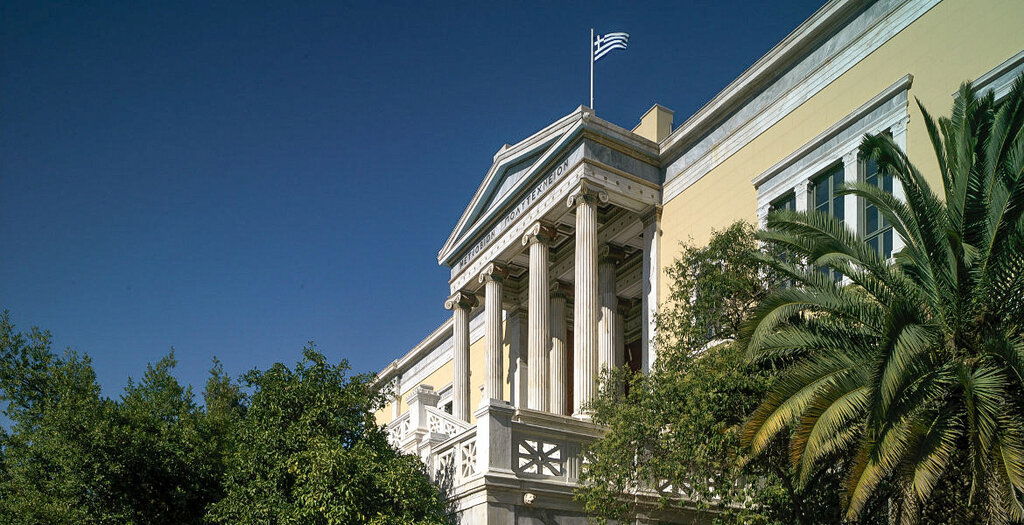
Greece isn’t just rich in culture; it’s also light on your wallet! EU/EEA students often benefit from free tuition at Greek universities.
Even for international students, the expenses are highly reasonable, with tuition fees starting as low as €1,500/year.
Greece is one of Europe’s most budget-friendly study-abroad destinations!
7. Greece is The Birthplace of Philosophy
If you’ve ever heard the term “lover of wisdom,” you’re already speaking Greek! “Philosophy” comes from the Greek words philos (love) and sophia (wisdom).
This is the place that brought the world Socrates, Aristotle, and the foundations of how we think and reason today.
8. Athens Had Walls Straight Out of a Fantasy Novel
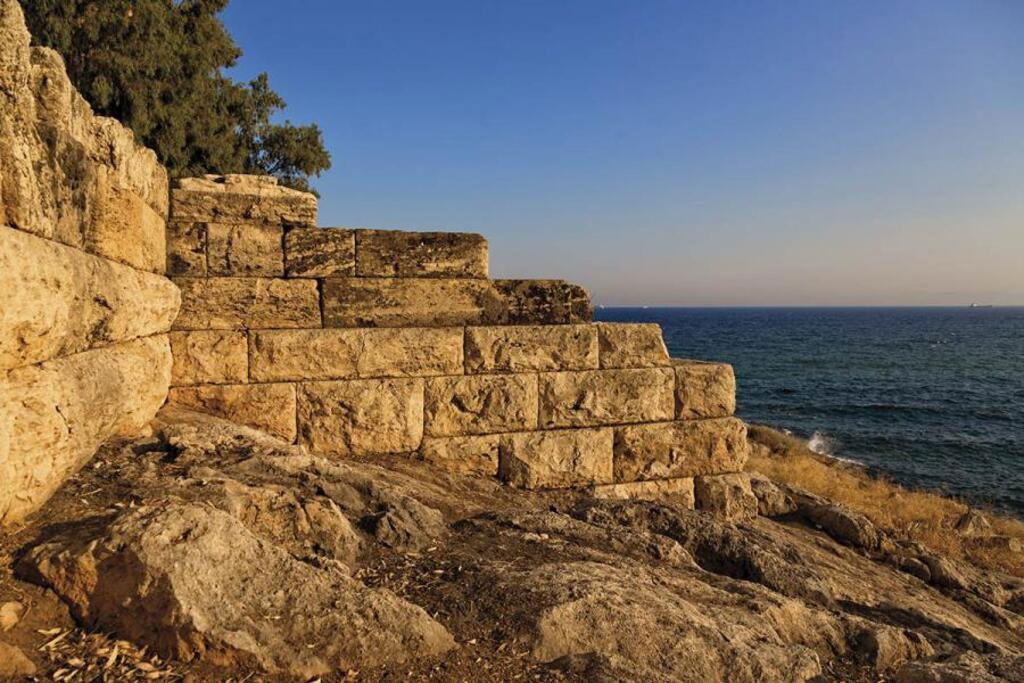
Athens once had massive walls connecting it to the nearby port city of Piraeus.
Known as the Long Walls, they protected the city’s vital trade routes in case of an attack.It sounds like a scene straight out of "Game of Thrones"!
9. Mandatory Military Service for Greek Men
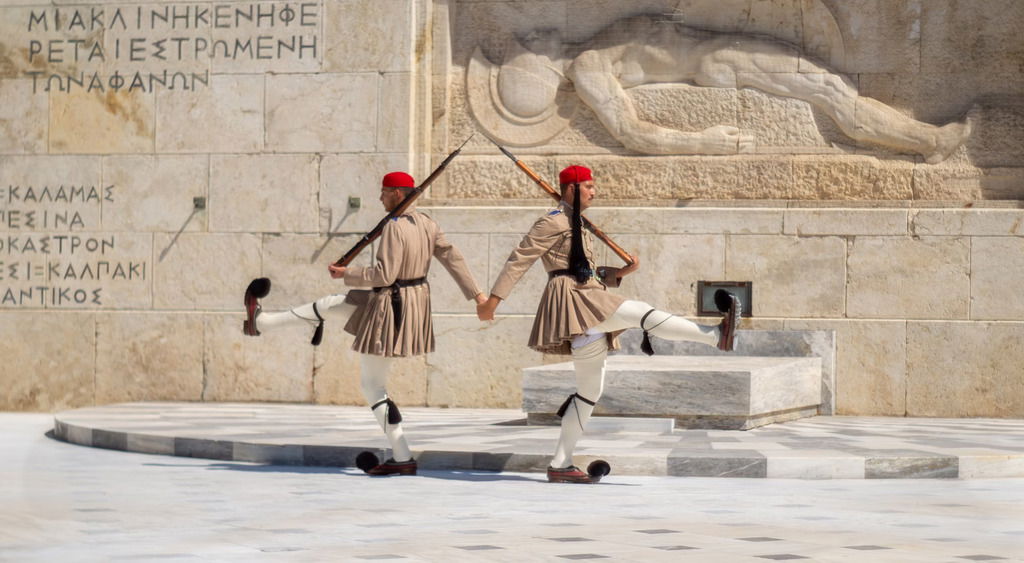
Greek men are required to serve at least nine months of military service after they turn 18.
This policy ensures that the country is always prepared for emergencies, though conflicts with neighboring Turkey are largely a thing of the past.
10. The Origin of Greece’s Name
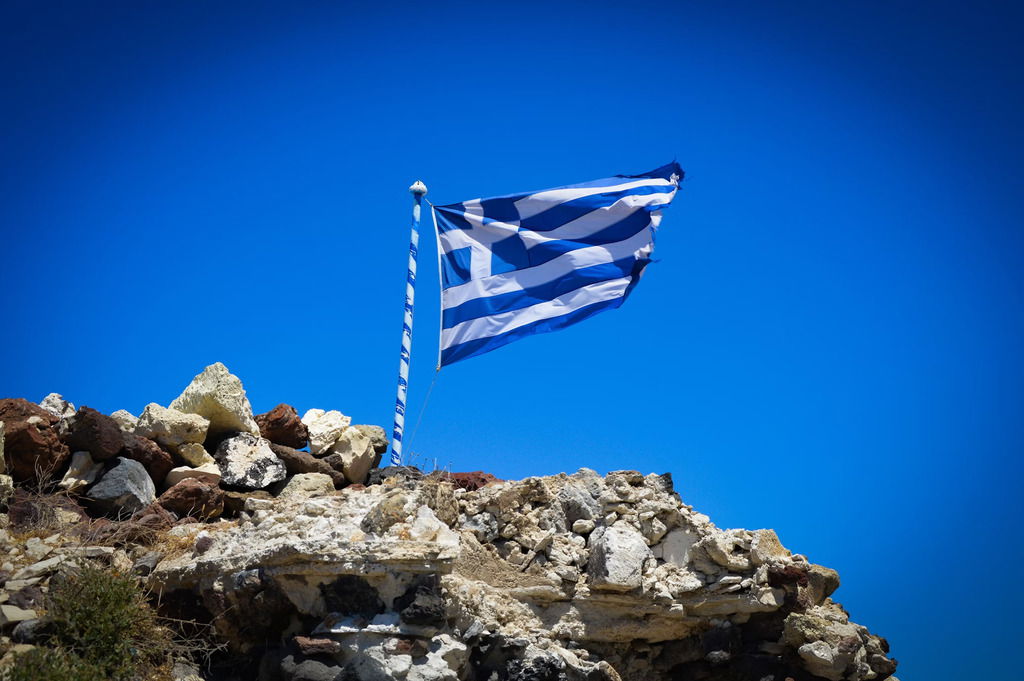
Where does the name Greece come from? The ancient Romans called the land “Graecia," derived from a group of Greek people called the Graikos.
But Greeks themselves call their country Hellas (Ελλάς), and its official name is the Hellenic Republic.
11. Greeks Take National Pride to the Next Level
Approximately 98% of the population identifies as ethnically Greek, making it one of the most culturally homogenous countries in Europe.
The largest minority? Turkish people, reflecting the region’s shared history.
12. The Ancient Greeks Inspired the Romans
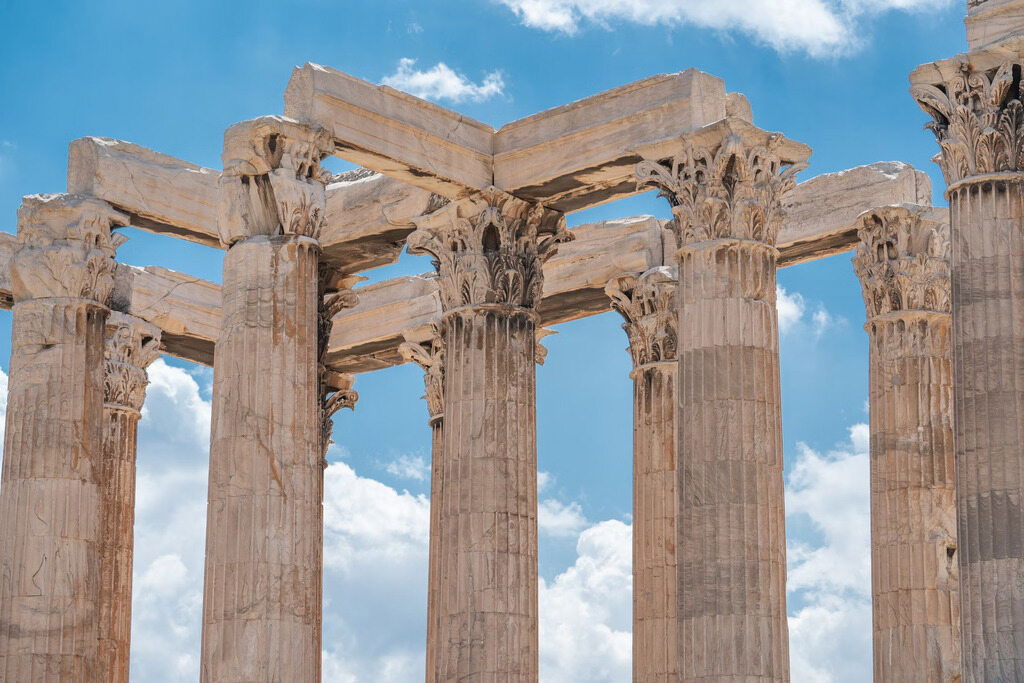
Ancient Greeks influenced Roman culture, art, literature, and even religion.High-ranking Romans often spoke Greek, studied Greek philosophy, and even competed in the Olympic Games.For centuries, Greece was the cultural origin of the Mediterranean world.
13. Greek Roots in the English Language
English speakers owe thousands of words to the Greek language.From “psychology” and “melody” to “icon” and “helicopter,” Greek’s influence on English vocabulary is undeniable.Next time you say “eureka,” remember it’s pure Greek!
14. The Acropolis Was a Social Project

Did you know half of Athens’ population was employed to build the Acropolis in 525 BC?
Think of it as one of the world’s first major public works projects.Beyond its majestic ruins, it offered jobs and boosted civic pride.
15. Greece Gave Us Drama
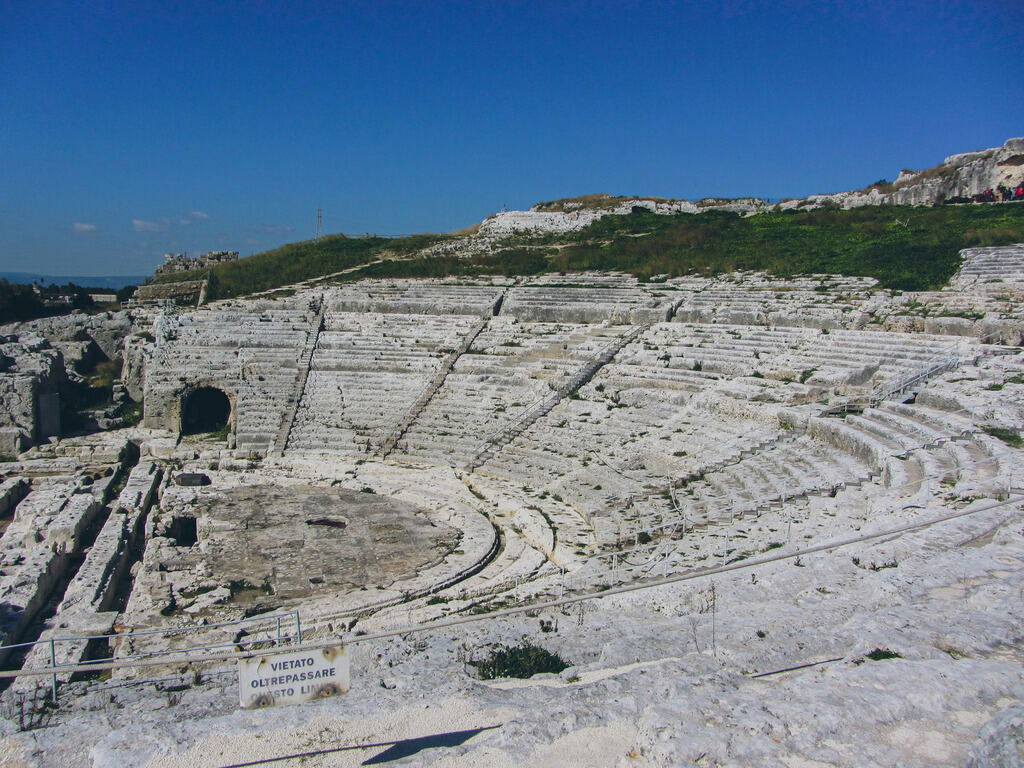
Theater began in Greece as part of religious festivals, and many key dramatic forms, comedy and tragedy, originated here.
Even the word “theater” comes from the Greek "theatron," meaning “place of viewing.”
The next time you enjoy a play or a movie, you can thank the Greeks for launching a variety of dramatic forms and discovering theater.
16. Greece Has Thousands of Beaches
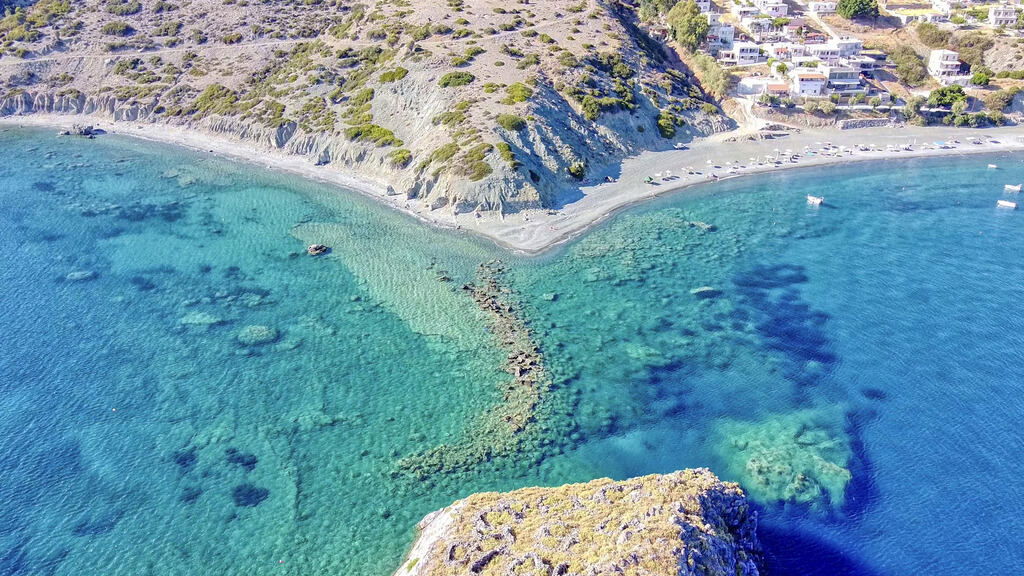
With its jagged coastline and thousands of islands, Greece boasts the world’s 11th-longest shoreline.
That means countless beaches to explore! From the iconic black sands of Santorini to the lunar-like landscapes of Sarakiniko Beach in Milos, there’s a seaside spot for every mood.
17. Mountains Make Up 80% of Greece
While Greece is famous for its beaches, did you know 80% of the country is mountainous? That makes it one of the least flat places in Europe. Don’t miss Mount Olympus, home to the tallest summit in the country, Mytikas, standing at 2,918 meters (9,573 feet)!
18. Mount Olympus Is Shrouded in Myth

Speaking of Mount Olympus, it’s not just a mountain; it’s a sacred site in Greek mythology. This was believed to be the home of the 12 Olympian gods, including Zeus, Poseidon, and Athena. Imagine studying at the base of a mountain that’s literally legendary.
19. Tourists Outnumber Greeks Every Year
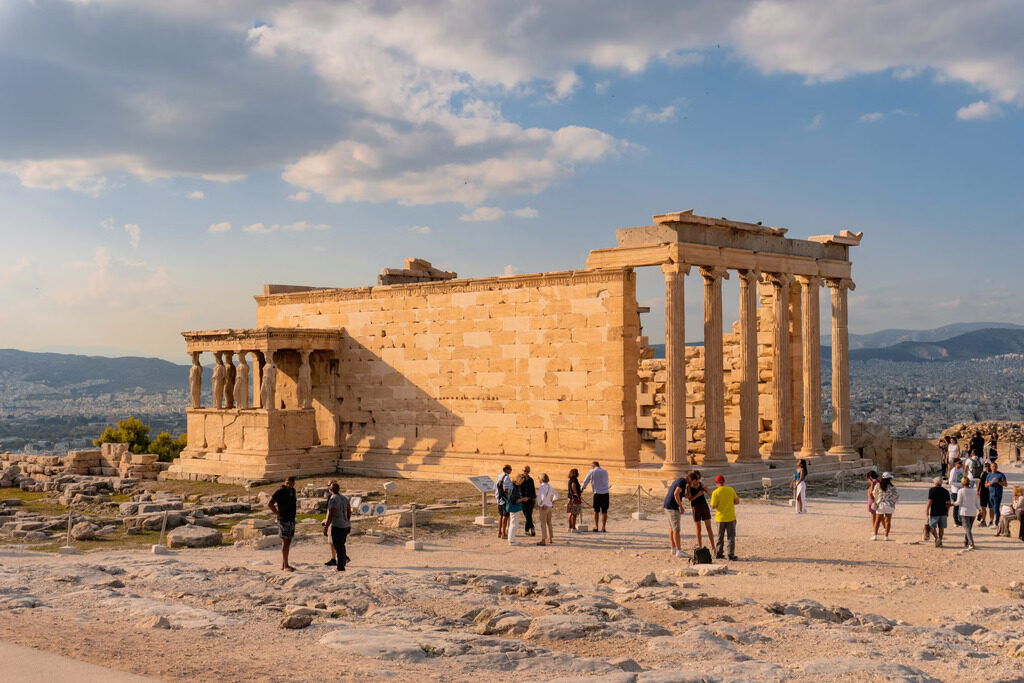
Greece attracts more tourists annually than it has residents. With an estimated population of around 10.36 million, the country welcomed approximately 32.7 million international visitors in 2023!
20. A Nation Rooted in Tradition
The Greek Orthodox Church plays a significant cultural role, with nearly 98% of the population adhering to this Christian denomination.
You’ll experience fireworks, processions, and feasts while they are having religious festivals that showcase the country’s deep-rooted traditions and warm sense of community.
21. Greeks Are Legally Required to Vote
In Greece, voting is technically mandatory for citizens aged 17 and older. Voter turnout has historically been high, with rates often exceeding 70%.
However, recent trends show a decline in participation, with turnout in the 2023 parliamentary elections falling to a record low of 47.18%.
22. The Birthplace of Western Medicine
Greece is home to Hippocrates, the “Father of Medicine.” Born on the island of Kos around 460 BC, he revolutionized caretaking by separating superstition from science.If you’re studying medicine, Greece is the ideal destination to engage yourself in the place where medical ethics began.
23. The Origins of the Olympic Games

The Olympic Games began in 776 BCE in Olympia, Greece, as a festival honoring Zeus. What started as a one-day footrace evolved into a five-day event featuring wrestling, chariot racing, long jump, and the pentathlon.
These competitions were so significant that wars were paused to ensure they could take place.
24. Greece Loves Its Olives and Olive Oil

Olive oil is more than just a cooking ingredient in Greece—it’s a core part of the country’s identity. With 130 to 150 million olive trees covering about 60% of its land, Greece is the world’s second-largest producer of olive oil.
25. Blue & White for Protection

Ever wondered why buildings in Greece are painted blue and white? It’s not just aesthetics.Traditionally, this color combo was believed to ward off evil spirits. You’ll see it in the Cycladic islands, where doors, windows, and rooftops proudly carry this cultural heritage.
26. Food That Tells a 4,000-Year-Old Story

Greek cuisine is the product of thousands of years of cultural interaction. Think fresh feta cheese, hearty saganaki, and sweet pasteli bars straight from ancient times. Every meal feels like a history lesson – one you’ll definitely enjoy taking.
27. Easter Celebrations Like No Other
Greek Easter celebrations are on another level! From candlelit street processions to fireworks lighting up the night, the festivities are a sensory experience.
If you’re lucky, you might even get to join a family feast featuring lamb and traditional Easter bread.
28. The Mystery of the Evil Eye

Greeks have long believed in protecting themselves from the “evil eye” through talismans called Nazar charms. You’ll find these blue “eyes” everywhere—from jewelry to home décor—as a cultural symbol and a popular souvenir.
29. The Plate-Smashing Culture
Yes, smashing plates is a real Greek tradition! While you may not see it everywhere, it’s still part of wedding and celebratory events.
Whether it symbolizes joy or serves as a gesture of wealth, breaking plates is an unforgettable part of Greek culture.
30. Affordable Living in Greece
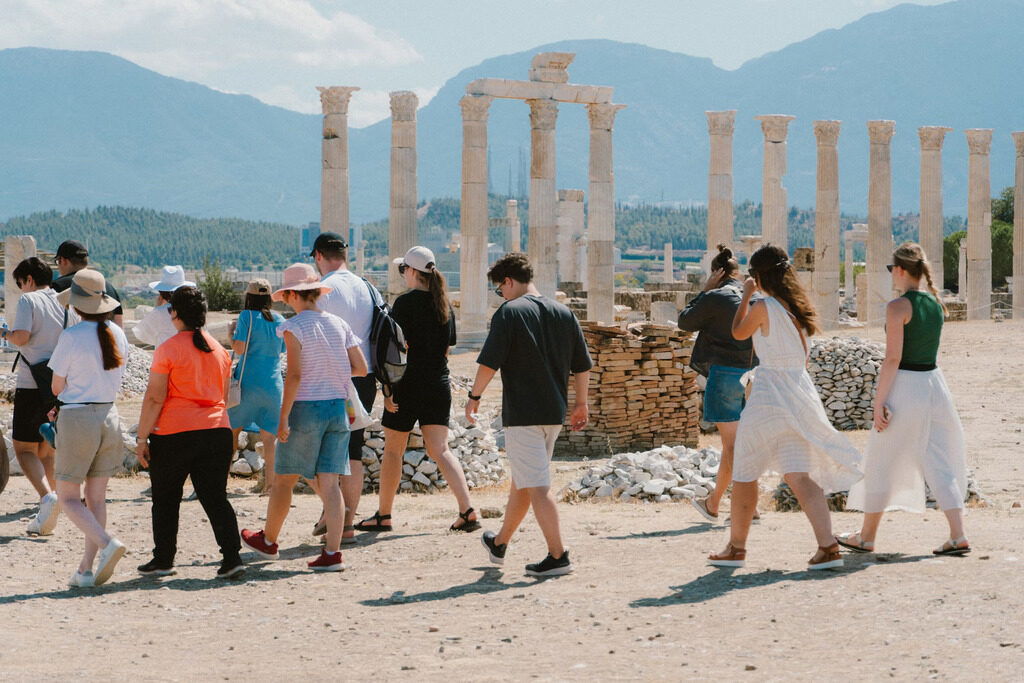
Greece is one of Europe’s most affordable destinations for tourists and students, with student living expenses, including accommodation, ranging between 450-700 EUR/month.
Rent in city centers ranges from €200 to €500 per month, and street food starts at just 5 EUR—much cheaper than countries like Spain or Germany.
Why Greece Should Be on Your Study Abroad List
If you’re considering studying abroad, Greece isn’t just about amazing history.It’s a place with a vibrant culture, affordable living, and friendly locals.
Exploring historic ruins, indulging in local cuisine, or joining a community of students from around the world—Greece has something to offer. From affordable programs to financial advice, we’ve got your back.
Want to learn more? Get in touch with our professional advisor and start your adventure in Greece today.

